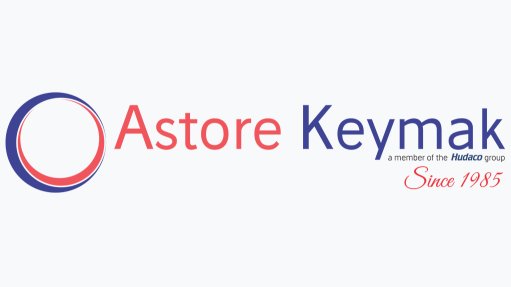Skills gaps threaten sustainable growth and progress in Namibia’s mining sector
This article has been supplied.
By: Julien Karambua - Country Manager at Workforce Staffing Namibia
Namibia is poised to become a key supplier in the global energy transition with discoveries of critical minerals like lithium, gold and uranium. While this presents a significant opportunity for economic advancement, ensuring that this growth is sustainable, requires a considered approach. There is currently a critical shortage of skilled workers, which risks undermining the country’s potential within the mining sector. If this skills gap is not addressed swiftly, the industry’s momentum could stall just as it is beginning to take off.
Shifting landscapes
In the last two years there has been a surge in investment and exploration which has shifted Namibia’s mining landscape. Well-established uranium and gold operations are showing recovery and signs of renewed vitality, and there are multiple new projects emerging in copper, zinc, lead, manganese, and especially uranium.
There is significant activity taking place in areas such as the restarting up of the Tschudi Copper Mine in Tsumeb, the expansion of the Rosh Pinah Zinc mine in the South, and new ventures like Osino Resources gold project. Further developments include the expansion of the Andrada’s lithium, tin and tantalum mine, as well as ongoing infrastructure development underway at Deep Yellow’s Tumas and Bannerman’s Etango-8 uranium project in the Erongo region.
This growth signals a turning point for mining in Namibia, and demand for local talent is rising across the board, from geology to metallurgy, mechanical engineering to environmental science. However, the national training pipeline is struggling to keep up with the demand for an experienced workforce within the mining industry. Currently we are seeing a high turnover of staff as they prioritise long term contracts over short-term contracts for job security.
Available skills versus industry needs
For many mining companies, it is already challenging to find and recruit local skills with the necessary qualifications and experience. Artisan-level skills such as boilermakers, electricians and fitters are generally available, but there is a notable shortage of higher-level skills like geologists, mining engineers, project leads, contract managers and technical specialists. Some mines are turning to international hires, but this is not a sustainable solution for an industry that needs local ownership and long-term community support. The rise of green hydrogen and oil and gas industries is expected to further intensify competition for talent, potentially leading to an overall labour shortage.
Upskilling and reskilling are urgent priorities
One of the biggest challenges is a lack of training infrastructure in specialised technical fields, as well as a disconnect between education and the skills required for mining. Government and the private sector need to work together to address this by investing in training programmes aligned with industry needs. It is also important to expand graduate and apprenticeship initiatives, while re-skilling professionals in emerging fields such as battery mineral processing or radiation safety.
Practical interventions are essential in addressing these challenges. This includes expanding internship programmes to provide relevant industry exposure and hands-on experience, tax incentives to encourage mentorship and training, and better employment terms to retain skilled professionals and build workforce stability.
Shaping the future of mining in Namibia
Localisation of skills is critical to the sustainable growth and progress of Namibia’s mining sector. Strategic workforce planning needs to be incorporated into every new project, and where skills are lacking, mining companies should look to develop regional training hubs and support institutions. This will not only serve their own immediate labour needs, but a wider ecosystem aimed at promoting lasting job creation.
Ultimately, strategic collaboration between government, industry, and education institutions is essential. Without it, Namibia risks skills shortages that delay projects, undermine investor confidence, and erode the sector’s potential.
Article Enquiry
Email Article
Save Article
Feedback
To advertise email advertising@creamermedia.co.za or click here
Press Office
Announcements
What's On
Subscribe to improve your user experience...
Option 1 (equivalent of R125 a month):
Receive a weekly copy of Creamer Media's Engineering News & Mining Weekly magazine
(print copy for those in South Africa and e-magazine for those outside of South Africa)
Receive daily email newsletters
Access to full search results
Access archive of magazine back copies
Access to Projects in Progress
Access to ONE Research Report of your choice in PDF format
Option 2 (equivalent of R375 a month):
All benefits from Option 1
PLUS
Access to Creamer Media's Research Channel Africa for ALL Research Reports, in PDF format, on various industrial and mining sectors
including Electricity; Water; Energy Transition; Hydrogen; Roads, Rail and Ports; Coal; Gold; Platinum; Battery Metals; etc.
Already a subscriber?
Forgotten your password?
Receive weekly copy of Creamer Media's Engineering News & Mining Weekly magazine (print copy for those in South Africa and e-magazine for those outside of South Africa)
➕
Recieve daily email newsletters
➕
Access to full search results
➕
Access archive of magazine back copies
➕
Access to Projects in Progress
➕
Access to ONE Research Report of your choice in PDF format
RESEARCH CHANNEL AFRICA
R4500 (equivalent of R375 a month)
SUBSCRIBEAll benefits from Option 1
➕
Access to Creamer Media's Research Channel Africa for ALL Research Reports on various industrial and mining sectors, in PDF format, including on:
Electricity
➕
Water
➕
Energy Transition
➕
Hydrogen
➕
Roads, Rail and Ports
➕
Coal
➕
Gold
➕
Platinum
➕
Battery Metals
➕
etc.
Receive all benefits from Option 1 or Option 2 delivered to numerous people at your company
➕
Multiple User names and Passwords for simultaneous log-ins
➕
Intranet integration access to all in your organisation




















